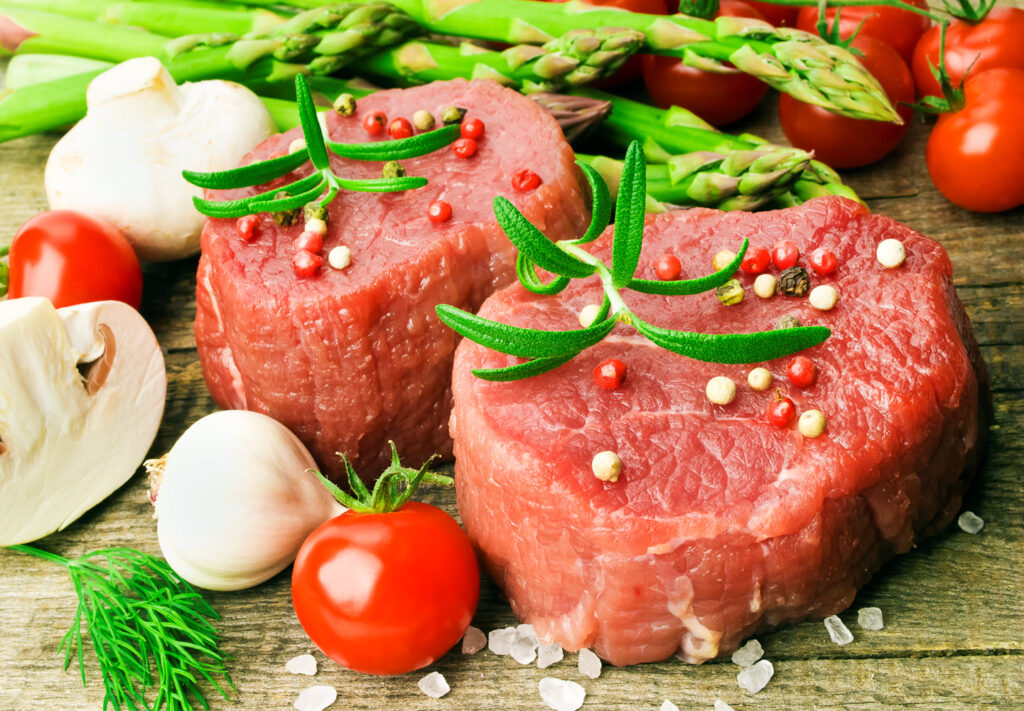The year 2023 marks a pivotal moment for the food manufacturing industry. As we traverse this period, the sector is witnessing profound transformations, influenced by global events, technological advancements, and ever-evolving consumer preferences. This article provides an in-depth exploration of the significant trends shaping the sector, offering insights for stakeholders to stay ahead of the curve.
Embracing Sustainability and Decarbonisation in Food and Meat Manufacturing
The global emphasis on environmental conservation has never been more pronounced. Industrial sectors, including food and meat manufacturing, are under scrutiny for their environmental impact. The call for sustainable practices is loud and clear in Australia and New Zealand, where sectors like agriculture, industrial, mining, and meat processing contribute significantly to national emissions.
The meat manufacturing supply chain, in particular, has been spotlighted due to its historically significant carbon footprint. From livestock emissions to the energy-intensive processes of meat processing, the industry has faced challenges in reducing its environmental impact. However, there’s a positive shift underway. Producers are adopting sustainable farming practices, reducing water usage, and exploring alternative, eco-friendly feed options for livestock, and meat processors are utilising such things as renewable energy to reduce their carbon footprint.
Across the broader manufacturing landscape, there’s a transition to renewable energy sources, such as solar and wind, to power operations. The benefits are twofold: reducing the carbon footprint and, in many cases, decreasing operational costs.
Additionally, sustainability is driving innovations in the industry. Efforts to minimise food and meat waste are paramount. Advanced packaging and labelling solutions are being developed to ensure that meat products remain fresh for longer durations, reducing wastage. Similarly, improvements in storage and transportation methods are ensuring better resource utilisation, further emphasising the industry’s commitment to a sustainable future.
Prioritising Health and Wellness

The health wave has swept consumers off their feet. With increasing awareness about the impact of food on overall health, there’s a growing demand for organic, GMO-free products and nutritionally balanced products. This trend is particularly evident in the meat industry, where consumers seek high-quality cuts and assurance of ethical and organic farming practices.
Organic meat, free from antibiotics, growth hormones, and synthetic pesticides, is rapidly gaining traction. Consumers are becoming more discerning about the source of their meat, seeking transparency about farming practices, feed quality, and animal welfare. The organic label assures them that the livestock was raised in humane conditions, fed organic feed, and not treated with synthetic chemicals.
Gone are the days when taste was the sole determinant of food purchases. Today’s consumer wants a holistic experience – delicious, nutritious, and beneficial food for long-term health. This shift is driving manufacturers to be more transparent about their sourcing and production methods, especially in the meat sector.
Manufacturers are investing in research and development to create products that align with this trend. From fortifying foods with essential vitamins and minerals to reducing harmful additives, the industry is undergoing a health-centric overhaul. In the realm of meat, this means ensuring that animals are raised in conditions that prioritise their well-being, leading to a product that is not only tastier but also healthier and ethically produced.
Technological Advancements
Automation - The New Norm
The digital revolution in food manufacturing is evident in the innovations that streamline and optimise production processes. Once seen as a luxury, automation is now a necessity, especially to combat inflation. Smart sensors monitor production processes in real time, ensuring consistency and quality. Automated packaging systems ensure precision, reducing waste and enhancing efficiency.
A prime example of this is Triton’s Automatic Weigh Labelling Application System. This state-of-the-art system epitomises the integration of automation and precision in the food manufacturing sector.
Designed as a labour-saving solution, Triton’s solution offers accurate product sorting, production validation, and traceability. It’s meticulously crafted to identify products outside of weight specifications, enabling managers and packers to address discrepancies promptly. One of its standout features is its ability to automatically apply labels to cartons at impressive speeds, handling as many as 25 cartons per minute.
Manufactured in New Zealand and supported by the Australian operation, the system is tailored to individual processing requirements. Its modular design ensures adaptability, fitting seamlessly into diverse room configurations. Furthermore, it integrates with multiple devices, such as X-ray machines, metal detectors, and carton erectors, showcasing its versatility and ability to integrate into an IoT environment (see next section).
The system’s efficiency is further highlighted by its incorporation of belt and catch weighers. These work in tandem with a separation conveyor to provide precise on-the-fly weight measurements, ensuring accurate label printing, consistent application, and automatic rejection for weight, CL, and metal discrepancies, all executed at high speeds.
Triton’s solution is not just about automation; it’s about enhancing the entire production process. It facilitates an operator-free weigh label process and can be integrated as a new installation or as an upgrade to existing manual systems. Its design prioritises space optimisation and labour reduction, making it a cost-effective choice for manufacturers.
Initially conceptualised for meat processing plants in Australia and New Zealand, its applicability extends to fish, poultry, and fresh produce industries, or any sector that demands automatic weighing and label application. With a focus on reducing labour dependency and offering a low capital outlay, Triton’s system is backed by round-the-clock support, ensuring uninterrupted operations.
In the ever-evolving landscape of food manufacturing, embracing such advanced technologies is pivotal for manufacturers aiming to stay competitive. Triton’s Automatic Weigh Labelling Application System is a testament to the industry’s forward momentum, setting new standards in automation and efficiency.
Unlocking the Power of IoT
The Internet of Things (IoT) is another game-changer. Devices interconnected across the manufacturing floor provide real-time data, enabling manufacturers to make informed decisions. As we progress through 2023, embracing these technologies will be pivotal for manufacturers aiming to stay competitive.
Triton FUSION: Centralised Intelligence in an IoT World
Amid this IoT revolution, Triton FUSION emerges as a beacon of centralised business intelligence and control. Designed meticulously to integrate Triton’s processing modules and data, FUSION addresses the challenges manufacturers face today. Whether it’s the need to amalgamate data from diverse operational segments, ensure end-to-end traceability, manage multiple sites, or delve into big data analysis, FUSION offers a comprehensive solution.
At its core, Fusion is more than just a software platform; it’s a holistic business management solution. It serves as a central hub for Triton modules and non-Triton ones, offering dashboards, advanced reporting, real-time business insights, and seamless integration capabilities with ERP, accounting, and other third-party platforms.
One of FUSION’s standout features is its accessibility. Leveraging the latest web technology, HTML5 ensures stakeholders can access critical data enterprise-wide, from production plants, remote offices, or even offsite locations. And it’s not just limited to workstations; FUSION’s data can be accessed via tablets and smartphones, ensuring that decision-makers have real-time information at their fingertips, anytime, anywhere.
But what truly sets FUSION apart is its adaptability. Recognising that every business has unique needs, FUSION offers customisable data presentations, ensuring that the insights gleaned are specific and relevant. Whether you’re a single-site operator or a large enterprise spanning multiple locations, FUSION’s scalable and flexible platform ensures you’re always in control, making informed decisions powered by real-time data.
In an era where data is the new gold, Triton FUSION ensures that manufacturers mine this gold efficiently, turning raw data into actionable insights, driving efficiency, and ensuring competitiveness in an ever-evolving market landscape.
Supply Chain Resilience
The recent global disruptions have underscored the importance of a resilient supply chain. Manufacturers have realised the risks of over-reliance on a single source or region. Diversification is the new mantra. Strategic partnerships, both local and international, are being forged to ensure a steady supply of raw materials and components.
Technology plays a crucial role here. Predictive analytics, powered by artificial intelligence, can forecast potential disruptions, allowing manufacturers to adjust their strategies proactively. In an interconnected global economy, having a robust and flexible supply chain is not only desirable; it’s indispensable.
Commitment to Environmental, Social & Governance (ESG) Principles in the Meat Industry
Modern consumers are interested in more than just the end product, especially regarding the meat they consume. They want to know the story behind it. Where was the livestock raised? Were they treated humanely? How sustainable were the farming practices? These questions underline the growing importance of ESG principles, particularly in the meat industry.
Historically scrutinised for its environmental impact and ethical considerations, the meat industry is undergoing a transformative shift. Manufacturers and producers are now being evaluated on their commitment to ESG principles. Ethical sourcing, ensuring animal welfare, adopting sustainable farming practices, and reducing carbon footprints are becoming the norm rather than the exception.
Fair labour practices extend beyond the factory floor to the farms where livestock is raised. Ensuring that farmworkers are treated fairly and work in safe conditions is as crucial as guaranteeing the humane treatment of animals. Additionally, with concerns about deforestation and overgrazing, sustainable land management is becoming a focal point for meat producers.
In 2023, meat manufacturers prioritising ESG not only stand to gain consumer trust but also position themselves for long-term sustainability in an increasingly conscious market. As consumers become more discerning about their meat choices, a commitment to ESG principles is not just ethically right but also a strategic business decision.
Addressing Skilled Labour Challenges in the Meat Industry of Australia and New Zealand
The meat industry, with its unique blend of traditional practices and modern technologies, is at a crossroads. As technological advancements permeate the sector, there’s a growing need for skilled labour that can navigate both the age-old techniques of meat processing and the latest innovations in automation and data analytics.
Both Australia and New Zealand, renowned for their robust meat industries, are grappling with this challenge. Traditional roles, such as butchery and livestock handling, are evolving. There’s a pressing demand for skills that not only respect the craft’s heritage but also align with the latest technologies, from automated meat grading systems to advanced supply chain management tools.
To address this, training and development programs tailored specifically for the meat industry are being initiated. Collaborations with educational institutions are fostering courses that blend traditional meat processing techniques with modern technological applications. Internships at meat processing plants offer hands-on experience, ensuring that the next generation is well-equipped to handle the industry’s evolving demands. On-the-job training, meanwhile, ensures that the current workforce isn’t left behind, providing them with opportunities to upskill and adapt.
For the meat industry in Australia and New Zealand to continue its legacy and thrive in the modern era, it’s imperative to have a workforce that’s skilled, adaptable, and ready for the challenges of tomorrow. Investing in human capital, in this context, is as crucial as investing in technological advancements.
Navigating Rising Energy Prices
Energy is a significant overhead for manufacturers. With prices soaring, there’s a concerted effort to find sustainable and cost-effective solutions. Renewable energy sources, such as solar and wind, are being integrated into manufacturing. While the initial investment might be substantial, the long-term benefits are undeniable in terms of cost savings and environmental impact.
Conclusion
The food manufacturing landscape in 2023 is a blend of challenges and opportunities. Manufacturers can ensure sustainable, profitable growth by understanding and adapting to these trends. As the industry evolves, a proactive approach, backed by innovation and a commitment to sustainability, will define the leaders of tomorrow.


